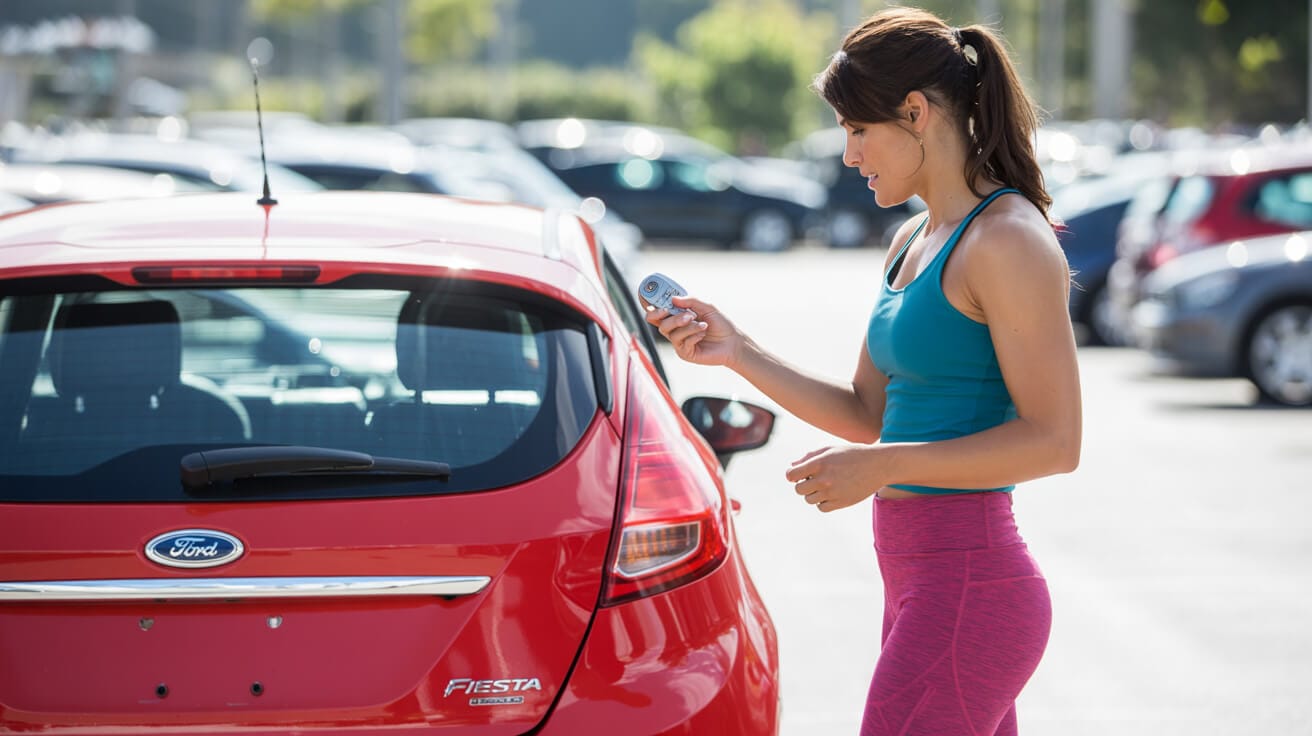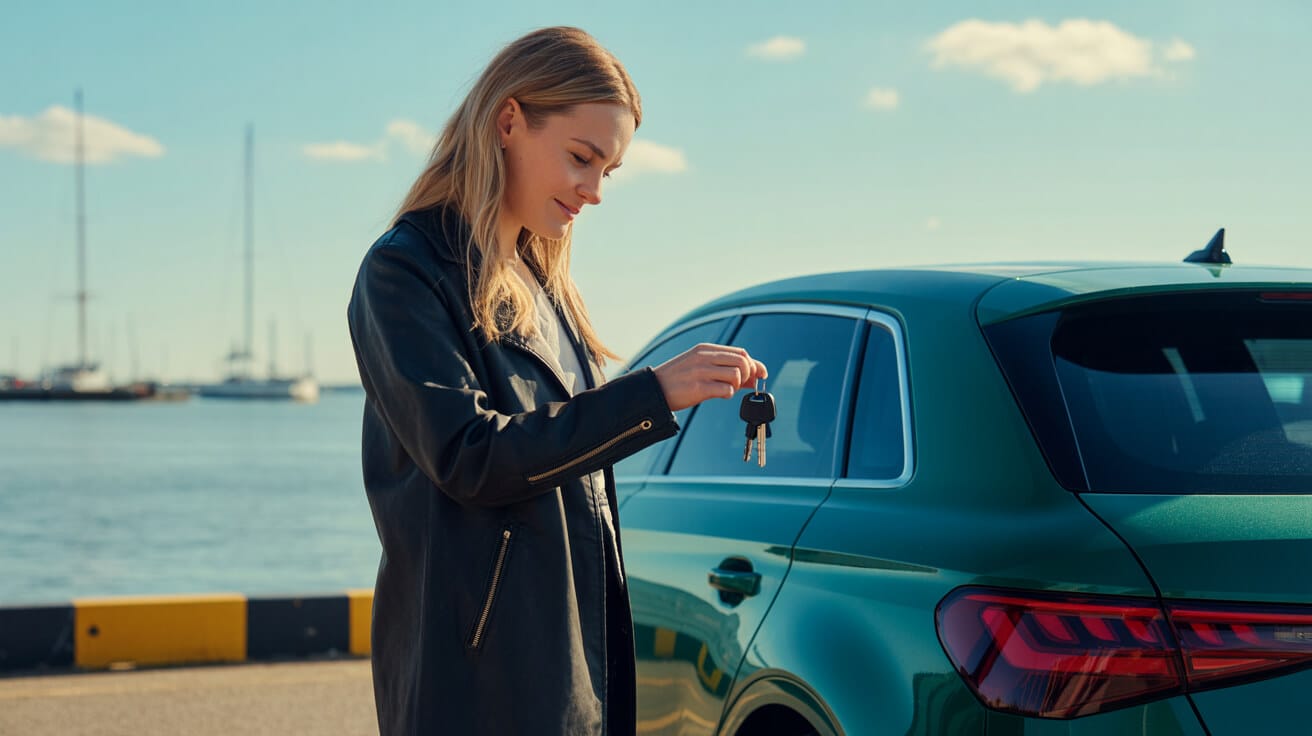How Long Do Car Key Batteries Really Last? (What Most UK Drivers Miss)
It’s easy to forget the power behind your convenience, but every journey with your car starts (and ends) with a tiny battery in your fob. Most UK drivers won’t think about it until the remote stops responding, putting you a single click away from lockout, stress, or even unexpected repair bills. The difference between smooth starts and sudden frustration is rarely just luck—it’s proactive, simple maintenance.
Modern car key fobs depend on coin cell batteries—typically CR2032, CR2450, or CR2025—to power their secure signals, keep your vehicle’s systems talking, and enable comfort features like hands-free unlocking or push-button start. When these batteries are fresh, your fob works fast and reliably. As the battery fades, so does your peace of mind. Quick tests and timely swaps keep control in your hands.
A key that fails silently becomes a crisis at the worst moment—it pays to stay ahead.
Understanding fob battery life isn’t just about numbers—it’s knowing your fob’s signs, the demands of your car’s system, and when to act to protect your time, security, and wallet.
How long do car key batteries really last?
Most car key batteries in the UK are good for two to four years, but lifespan depends on your habits, your key type, and the battery brand. Passive-entry and high-feature fobs may need a change every one or two years, especially in colder weather.
Why do so many drivers get caught off-guard?
Because batteries usually fade, not fail—most fobs still work (badly) before dying. Ignoring early signs or using cheap replacements is the fastest route to trouble.
What Makes Car Key Fob Batteries Die Faster Than Expected?

Any battery will run down, but car key fobs fight a hidden battle—active features, proximity unlock, and constant signals all draining energy behind the scenes. Leaving your fob near the car, constant button-presses from daily routines, or storing a spare that never gets used all create opportunities for early failure, not because of quality but because of lifestyle.
Batteries also hate extremes: cold UK winters can cut battery voltage and signal range quickly; heat can accelerate internal ageing. Even when you’re not using the key, electronics keep a trickle current alive—especially in premium smart/electric vehicles or fleet vehicles with digital access.
You can’t outsmart physics, but you can out-plan inconvenience.
Old or mismatched batteries can leak, cause corrosion, or damage key contacts—a shortcut that leads straight to expensive repair or replacement. The lesson from professionals: start with the right battery, and don’t wait for total failure.
What shortens the life of my car key battery?
Frequent use (in and out all day), storing keys near the car or in signal-rich areas, and exposure to temperature swings all shorten lifespan. Even spare keys go flat if left untouched—or too close to the vehicle.
Is battery quality really that important?
Yes. Cheap, “no-name” batteries risk swelling, leaks, and unreliable signals. Always use a manufacturer-recommended brand and match the code (like CR2032 or CR2450) exactly.
Identifying the Right Battery: No Guesswork, Only Certainty

It’s tempting to grab any coin cell from the shop, but getting your fob’s battery wrong is the number one source of failed DIY swaps and warranty headaches. Different makes and years use specific battery sizes and voltages—CR2032 for most Vauxhall, Nissan, and PSA models; CR2450 for many BMW, MINI, and some Ford and Toyota; CR2025 for select Mercedes and Toyota models.
Start by opening your fob (carefully!) and checking the battery code stamped on the cell or case. Your owner’s manual will confirm, or a quick check with a locksmith can clarify uncertain models. Record the code, fit only trustworthy brands, and log the date—you’ll thank yourself at the next service.
The best repairs you’ll never need are the ones with the right part—first time, every time.
Fitting the wrong cell may work at first, but it can damage the contacts, kill water seals, or even invalidate your warranty. And don’t forget your spares—all key batteries have a shelf life, especially in modern “always on” fobs.
Which battery type fits my car fob?
Most UK fobs use CR2032, but Ford, Toyota, BMW MINI, and some Mercedes may require CR2450 or CR2025. If you’re unsure, check the manual or bring your fob to a specialist.
What’s the safest, simplest way to buy a replacement?
Use only trusted brands approved by your vehicle manufacturer or an authorised locksmith. Choosing a reputable supplier prevents leaks and ensures maximum fob life. Throw out old batteries the right way—never in general waste.
Spot the Signs Early: Stay Off the Back Foot

A failing car key battery won’t make a scene; it whispers: “You’re one step from trouble.” Shrinking remote range, needing to press buttons twice, or flaky unlocking are all red flags. Don’t ignore them—half of UK lockouts start with a key that “mostly worked.”
Few cars will warn you with a light or dashboard message before the key battery fails outright. For most, testing the fob’s range or keeping track of how many presses it takes to unlock the door is the only warning you’ll get. Cold snaps can tip a marginal battery over the edge.
Most surprises give you a signal if you’re listening for it.
Take two minutes each month: check your remote still works at arm’s length from the car, and that all doors unlock smoothly. If you’re managing a fleet or sharing cars among family, build regular checks into your routine.
How do I recognise the early warning signs?
Watch for weaker range, needing several clicks, or unreliable unlock/start. These mean the battery’s voltage is already low—even if it “works” today.
What should I do when my spare starts showing issues?
Change both batteries together if you’re running pairs—spares can go flat on the shelf. Always keep notes on dates and any quirks, especially for shared vehicles.
DIY Swap or Professional Replacement? (And When to Call the Experts)

Replacing a key battery looks simple, but a fumbled DIY can turn a £3 coin cell into a £250 fob replacement. Most modern fobs will open with a slot or gentle pry, but rushed attempts risk snapping the housing, losing gaskets, or bending contacts. Get it right, and you’ll save stress and cash.
The safest route? Take five minutes: lay out the right battery, use a non-marking tool, and snap a phone photo of the battery code. Never force a tight case or ignore resistance—damage is expensive and hard to reverse. Some digital or smart keys need re-pairing (or dealership authorisation) after a battery change.
In repairs, slow is fast. Patience saves money and protects your car.
Fleet managers and owners of high-value vehicles should keep logs—vehicle, key code, date, and who did the swap—protecting warranty and audit requirements. If ever in doubt, Autolocks Ltd can guarantee compliant swaps, documentation, and aftercare.
Can anyone swap a car key battery?
If your remote snaps open easily and the procedure’s in your manual, most can do it with care. If your key is sealed, digital, or triggers a pairing error, it’s time for pro help.
What extra risks come with smart or digital keys?
Modern “phone-as-key” or proximity fobs may need special authentication after a swap. If a new cell doesn’t fix the issue, leave it to the professionals—better one quick call than bricking your fob.
Don’t Sabotage Your Own Security: Logging, Data, and Hidden Dangers

A missing log is an open question—to your warranty provider, to your insurer, and to your future self. For most UK drivers, a simple pen-and-paper (or digital) record—car, fob model, battery code, date—keeps every battery swap above board. For fleets or business users, this record proves maintenance for compliance, supports warranty claims, and eases aftercare.
Cut corners here, and any future dispute—an insurance claim, a warranty query—lands on you. Professionals like Autolocks Ltd always log battery replacements, keep records encrypted, and supply aftercare. Your privacy is protected, with details only used for your support.
Real security isn’t a lock—it’s always knowing where you stand.
Never fit a battery that feels loose, sits at an angle, or lets the case rock. Skip major brands, and you risk a cell that swells, leaks, or cooks your fob electronics. Each small mistake adds up—cheap battery, skipped log, forceful open, and careless reassembly can turn trouble-free motoring into a day of wasted time.
Why does documentation matter to most UK drivers?
It’s invisible until you need it—a proper service log “proves” you cared, no matter what comes later. It protects your pocket when (not if) a battery job is ever questioned.
What details should be in every replacement log?
Car reg/model, fob type, battery brand and code, date, and technician if done by a professional. For business ops, add photos and signature for iron-clad proof.
Warranty, Compliance, and Aftercare—What Professional Service Looks Like

A fresh battery is just a ticket in: what buyers, insurers, and fleet managers care about is whether you can prove the job was done right. Dealers and legitimate locksmiths document every battery installation: who did it, which part, the date, and the successful test. That protects your claim, maintains your warranty, and ensures follow-through if concerns arise.
UK law and carmakers are ramping up compliance and privacy standards—photos, written evidence, and data logs are best practice, not just “extra”. For high-value cars or digital keys, failing to keep full documentation can even void future claims or create legal risk. Don’t skip the last, most durable step.
Professional handover means showing the fob working after the battery change, guiding you on when to swap again, and telling you how to recycle spent batteries safely.
The job’s only finished when you can prove it—today and in a year.
Your records are confidential, encrypted, and used only for your benefit—no spam, no data sales. Autolocks Ltd operates with the highest security standards, going beyond the legal minimum.
What should you expect from a professional replacement?
Photo-proof, full log, explained process, warranty and privacy assurance, and contact points for aftercare. For fleet or keyed access vehicles, these logs are your audit ticket and insurance guardrail.
Is there any legal risk with DIY battery swaps?
As long as you keep your record, use the correct part, and don’t damage the fob, you’re covered. Skip documentation or use unknown brands, and you might forfeit your warranty or even expose your vehicle’s security systems to risk.
Compliance and Security Go Hand-in-Hand—Here’s the Checklist

Missing a compliance detail isn’t harmless; for fleets or anyone with new vehicles, it can create legal and financial headaches. Professional locksmiths in the UK (like Autolocks Ltd) follow standards on radio transmission, secure programming, and encrypted retention—these aren’t bonuses, but essentials.
Here’s what a compliant fob battery swap involves:
Step-by-Step: The Secure Battery Replacement Process
- Verify ownership and consent—always prove ID before starting.
- Confirm battery type—open fob, log code, cross-check with the car manual.
- Document every step—photo evidence, who, when, and the exact battery fitted.
- Instal only trusted batteries—avoid low-cost brands.
- Demonstrate all key features—lock, unlock, start, alarm—right after the swap.
- Secure your data—notes recorded, encrypted, and retained just for you.
Transitioning to a digital key? The rules are even stricter—provision, audit, and privacy for your device and vehicle.
In compliance, good enough rarely is. Trust lives in the details.
Professionals also provide detailed aftercare, reminders for the next swap, recycling instructions, and rapid support for any issues.
What security and compliance features really set pros apart?
Ownership verification, signed records, data encryption, battery traceability, and audit-ready handover—these all keep your car and info safe, and keep you covered when regulations or warranty terms are enforced.
Why do businesses and fleets trust Autolocks Ltd?
Our fully logged process, encrypted storage, and compliance with UK and OEM regulations remove risk, raise trust, and keep your business moving—not blocked by missing paperwork.
Choose Autolocks Ltd—Confidence, Compliance, and Seamless Service
Your car key is the gateway to your mobility, privacy, and peace of mind. Don’t gamble with a quick fix—choose the UK’s locksmith leader for audit-logged battery swaps, full warranty compliance, and bulletproof aftercare.
With Autolocks Ltd, you get more than a new battery; you win real security, documented support, real-time help when needed, and a process you can rely on for every vehicle.
Every battery change is verified by owner ID, the right part is chosen for your car, and each step is documented—by the technician and by you. All personal data is handled with the strictest privacy and never reused for marketing.
We move fast for emergencies, schedule calmly for routine, and stay on call for aftercare—because your journey depends on everything working first time, every time.
Choose Autolocks Ltd when your fob’s security, convenience, and documented support matter most. If you value verified compliance, swift assistance, and full aftercare, our services are ready to keep you moving with confidence.
Frequently Asked Questions
How long does a typical UK car key battery last, and why does timely replacement matter?
Most UK car key batteries will serve you well for about two to four years; but once that clock is ticking, trouble hides in plain sight. Standard remote keys outlast high-feature “keyless” fobs, which are always on and drain faster. Harsh weather, constant unlocking and locking, or storing keys close to the car—especially in city centres—shave down that window.
You often get subtle warnings: the fob becomes less reactive, the range evaporates, or you need multiple presses. Drivers who ignore these hints risk a sudden lockout at the worst time. Industry research shows that in almost half of UK breakdown rescues for “locked out” drivers, a dying fob battery was the preventable root cause. Changing out your key battery every two years—before the warning signs—is money and time banked against emergencies.
What silent warnings point to a dying car key battery?
- Reduced locking range, pressing the remote multiple times, or unreliable “unlock” response.
- Your car fails to recognise the fob, or “key not detected” flashes on the dash.
- Delays or warnings when pushing the start button.
Catching these early and acting is your best defence—small action now, zero stress later.
Is battery life shorter for smart keys and digital fobs?
Absolutely. Smart remotes (“keyless go” and app-enabled keys) are designed to listen all day—eager for your next move—and so use more power per month. For frequent drivers or city fleets, it’s not strange to change batteries every 12 months.
A slow-starting fob is mercy’s last warning. Replace once, and avoid the midnight callout.
What drains UK car key batteries the fastest—beyond just daily use?
It’s not just how often you push the button—it’s where you keep your keys and what tech they’re running. Modern fobs, especially proximity or digital keys, draw current even when idle, and are notorious for sending “wake up” signals if left near the vehicle overnight. Sub-zero mornings and soggy British seasons sap battery voltage quickly.
Business drivers and busy families who alternate between main and spare keys unknowingly double the usage, wearing down batteries in both. Even keys left too close together in a drawer can wake each other if RF fields overlap, gnawing at charge. The hidden risk magnifies when spare keys that live in a kitchen drawer—unopened for years—are suddenly called into action and fail.
Are bargain batteries a false saving?
Yes. No-name cells often have dodgy output or leak corrosive material, which can destroy delicate circuits inside the fob—leading to hundreds of pounds in repair bills. Autolocks Ltd fits only manufacturer-recommended batteries (CR2032, CR2450), prioritising both performance and warranty protection.
Does weather or storage placement matter?
Absolutely. Freeze-thaws, summer heat, and storing the key near metal appliances disrupt battery life. Keeping your keys several metres from the car, out of direct sunlight, and not near signal-blocking materials will extend their lifespan.
Shortcuts in battery choice or storage only pay the repair shop later.
What are the earliest signs your car key battery needs replacement—before you get locked out?
The first sign is often a reduction in range: you must stand closer for the remote to react. If it takes more than one press to unlock or your car sometimes pretends you’re not holding the key, you’re on borrowed time.
Fleet drivers and business users will see disruption when suddenly, the spare key doesn’t work on a handover or a pool car won’t start during a shift.
Dashboard battery warnings on newer vehicles should be a call to action, not a suggestion. Ignoring them leaves you vulnerable to sudden system lockouts. Combining “click and nothing” with range drop-off means your battery’s living on borrowed charge.
What simple self-tests confirm a weak battery?
- Try locking/unlocking from at least six big strides away; unreliable or “dead” at distance means imminent failure.
- Test every key you have: if the spare is flat, swap both at once—don’t gamble with your downtime.
Why replace all remote and spare batteries together?
Consistency breeds security. Swapping all active key batteries at the same time, and logging the event, eliminates mystery lockouts and keeps your security chain unbroken—crucial for business, fleet, and insurance compliance.
Most car key failures start as whispers; those who listen keep moving, while the rest get stranded.
Can you change your car key battery yourself, or is expert fitting worth it?
Many UK car keys allow basic DIY battery swaps, provided you follow the manufacturer instructions and use a plastic, non-metallic tool to protect the shell and electronics. But modern fobs, waterproof designs, and digital keys often require professional attention to avoid disaster.
Opening a sealed or “smart” key incorrectly can snap delicate internal springs, break water seals, or damage tiny circuit contacts. That £2 battery misstep can do £200 in fob or module damage, especially for prestige vehicles or digital keys.
DIY makes sense if you’re working with an old-style remote, clear photos, and you’re cautious. But if your key resists opening, or you find odd screws, sealed grooves, or app-linked features, professional help is best.
What’s the real cost of a rushed, DIY swap?
- Cracked housing that breaks seals (kills waterproofing)
- Wrong battery size or orientation (kills contacts or fails to fit)
- Lost or bent internal spring
- Out-of-warranty failure—your dealer declines coverage
When do you need Autolocks Ltd on site?
- Sealed or digital fobs, or when you need a logged, manufacturer-compliant repair.
- New keys after a swap that won’t sync or pair with modern vehicles, apps, or fleets.
- For warranty, business contracts, or insurance audit needs where every action must be recorded and provable.
Autolocks Ltd brings the right tools, genuine cells, and documents the job for audit and future claim.
A fob cracked open in panic empties your pocket quickly. Measured moves protect your wallet and your day.
Why is documented battery servicing crucial for compliance, insurance, or business audit?
A precise log—date, vehicle, fob type, battery spec, and technician ID—proves you’ve handled your security credentials with diligence, not negligence. For warranty validity, fleet insurance, or UK legal compliance, that record is gold.
Modern insurers and manufacturers often refuse claims where service events can’t be proven. If your fob fails after battery work, a missing or incomplete log could turn a warranty replacement into an expensive debate.
With Autolocks Ltd, every service is photo-logged, securely encrypted, and tied to only your vehicle or nominated business asset—shared only with you and those you approve.
What should company and fleet managers log beyond the basics?
- Vehicle and fob details, battery code, swap date, and technician name/ID.
- Pre- and post-swap photos for evidence.
- Service record export capability for claim speed and audit assurance.
How does Autolocks Ltd keep your data safe?
Anti-marketing policy and strict GDPR compliance means your service record is for your support only, never sold or cross-shared. You and your authorised agents alone hold the access keys.
In compliance, the paper trail is often worth more than the physical key. Proof is power.
What defines a fully compliant, secure car key battery replacement in today’s UK fleet and regulatory context?
Full compliance isn’t just best practice—it’s required. UK standards and carmakers now mandate:
- Verified ID before any work
- Accurate success-logged battery fitting
- Technician sign-off plus before/after photo log
- Functional demo of lock, unlock, start, and alarm
- Encrypted record storage for claims or audits
- Disposal guidance for used batteries
For new digital and app-based keys, this extends to device pairing logs, user consent proof, and a clear aftercare record.
For fleets, compliance gaps can void contracts and stop workflow cold—missing a log isn’t just a clerical error, it can force vehicles off the road.
How does Autolocks Ltd exceed UK compliance benchmarks?
Every battery change is fully documented, encrypted, and linked to your specific vehicle or business asset. We photo-log each step, show you the process, and deliver a future-proofed record trusted by dealers, insurers, and fleet managers. You receive guidance for next time and secure privacy—no marketing follow-ups, ever.
True security is built on proof, not promises. Every credential serviced is a contract honoured.
How does Autolocks Ltd ensure your mobility—no matter what key or credential you use?
Whether you need help with a mechanical key, classic fob, smart proximity device, or the latest app-based digital key, Autolocks Ltd offers rapid, UK-wide response with no-destructive-first methods and a compliance guarantee.
We operate owner-verified only: no service unless you verify, so your vehicle and data are always protected. Photo audit records, compliance logs, and aftercare plans are included as standard.
At the speed of your needs—on-demand or scheduled—Autolocks Ltd protects your access, your assets, and your privacy, keeping you on the move and your documentation airtight for every audit and insurance claim.
With every visit, you get guidance for future swaps, transparent cost, no surprises, and a reputation built on honesty and above-board service—that’s why drivers, fleets, and businesses across the UK trust Autolocks Ltd.
In security, the right partner moves you forward—one proof, one credential, one journey at a time.







